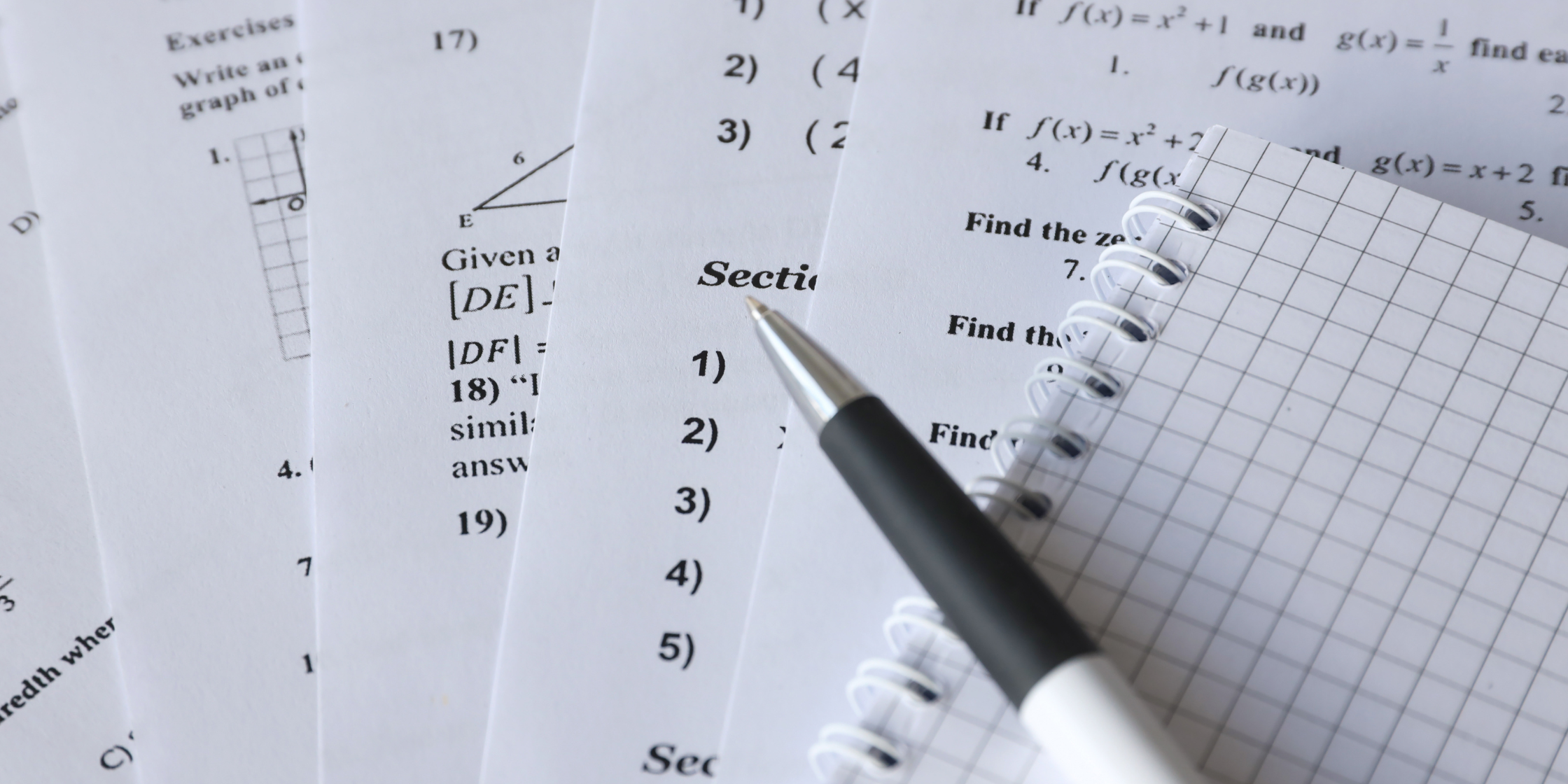As senior secondary students, your school-based and external exams are significant milestones that can shape your academic future. With just six weeks until your exams, it’s essential to prepare thoroughly and develop effective strategies for tackling various types of exam questions. This blog will guide you through practical tips to approach multiple-choice, short answer, essay, and problem-solving questions. These strategies will help you feel confident and perform your best on exam day.
Multiple-Choice Questions
Multiple-choice questions (MCQs) are common in many exams and require you to choose the correct answer from a list of options. To maximise your chances of selecting the right answer, follow these strategies:
- Read the question and all options carefully: Don’t rush. Pay attention to details, as small nuances can change the meaning of a question.
- Eliminate incorrect answers: Narrow down your choices by removing options you know are wrong.
- Look for clues: Keywords in both the question and the options can guide you towards the correct answer.
- Use the process of elimination: When unsure, eliminate what you know is incorrect and make an informed guess from the remaining options.
Example Question:
What is the chemical symbol for the element hydrogen?
a) Hg
b) He
c) H
d) Na
By eliminating obviously wrong answers, you can quickly see that option “c) H” is correct.
Short Answer Questions
Short answer questions require concise yet accurate responses, typically in one or two paragraphs. Here are some tips to ensure your answers are clear and well-structured:
- Underline key terms in the question: Focus on what is specifically asked.
- Be direct and to the point: Avoid unnecessary details that could confuse your answer.
- Support your answers with relevant examples: Where appropriate, use examples to strengthen your response.
- Stay within the word limit: Manage your time effectively by keeping your answer brief but complete.
Example Question:
Describe the process of photosynthesis.
Answer: Photosynthesis is the process where plants use sunlight, water, and carbon dioxide to produce glucose and oxygen. It occurs in chloroplasts, mainly within the thylakoid membranes and stroma, where light energy is converted into chemical energy stored as glucose.
Essay Questions
Essay questions test your ability to present in-depth responses and showcase your understanding. To excel, follow these steps:
- Carefully analyse the question: Break it down and ensure you fully understand what is required.
- Plan your essay: Create a brief outline before starting to write. Organise your main points and supporting arguments.
- Start with a strong introduction: Present your thesis clearly and set the context for your essay.
- Write coherent paragraphs: Ensure each paragraph has a topic sentence and evidence to support your argument.
- Conclude effectively: Summarise your key points and restate your thesis in the conclusion.
Example Question:
Discuss the impact of social media on society.
Introduction: Social media has transformed communication and interaction in modern society. This essay explores the impact of social media on communication, relationships, and privacy, and its broader effects on societal norms.
Problem-Solving Questions
Problem-solving questions assess your ability to apply knowledge to practical situations. Use the following steps to approach these types of questions:
- Understand the problem: Carefully read the question to identify the task or problem.
- Break it down: Divide the problem into smaller steps to tackle it systematically.
- Apply relevant concepts: Use the appropriate formulas, equations, or theories to solve the problem.
- Show your workings: Write down each step of your calculations or reasoning clearly.
- Double-check your solution: Ensure your final answer makes sense within the context of the problem.
Example Question:
A train leaves Station A at 8:00 AM and travels at 80 km/h towards Station B, which is 400 km away. Another train leaves Station B at 9:00 AM, travelling towards Station A at 100 km/h. When will the two trains meet?
- Analyse the problem: The first train travels for one hour before the second train starts. We need to calculate when they will meet.
- First train’s time: The first train travels at 80 km/h, covering 80 km by 9:00 AM.
- Combined speed: Both trains are moving towards each other, so their combined speed is 180 km/h.
- Time to meet: After 9:00 AM, they have 320 km left to cover together. Using the formula time = distance/speed, it will take them 320 km ÷ 180 km/h ≈ 1.78 hours, or approximately 1 hour 47 minutes. Therefore, they will meet around 10:47 AM.
By clearly understanding the problem and applying appropriate formulas, we were able to determine the meeting time.
Final Exam Preparation Tips
As you prepare for your upcoming exams, remember these additional tips to optimise your performance:
- Practice regularly: Consistent practice can help you become familiar with various question formats and improve your timing.
- Time management: During the exam, allocate your time wisely across all questions. Don’t spend too much time on any single question.
- Seek clarification: If you’re unsure about any topics, reach out to your teachers for guidance and additional resources.
- Stay organised: Keep your study materials in order and create a study timetable that covers all subjects.
By following these strategies and putting in the effort to practice and revise, you will be well-prepared to excel in your external exams. Best of luck with your studies!
Note: Adapt these tips to the specific requirements of each subject and consult your teachers for subject-specific advice.
PETER HAND | CO-FOUNDER







